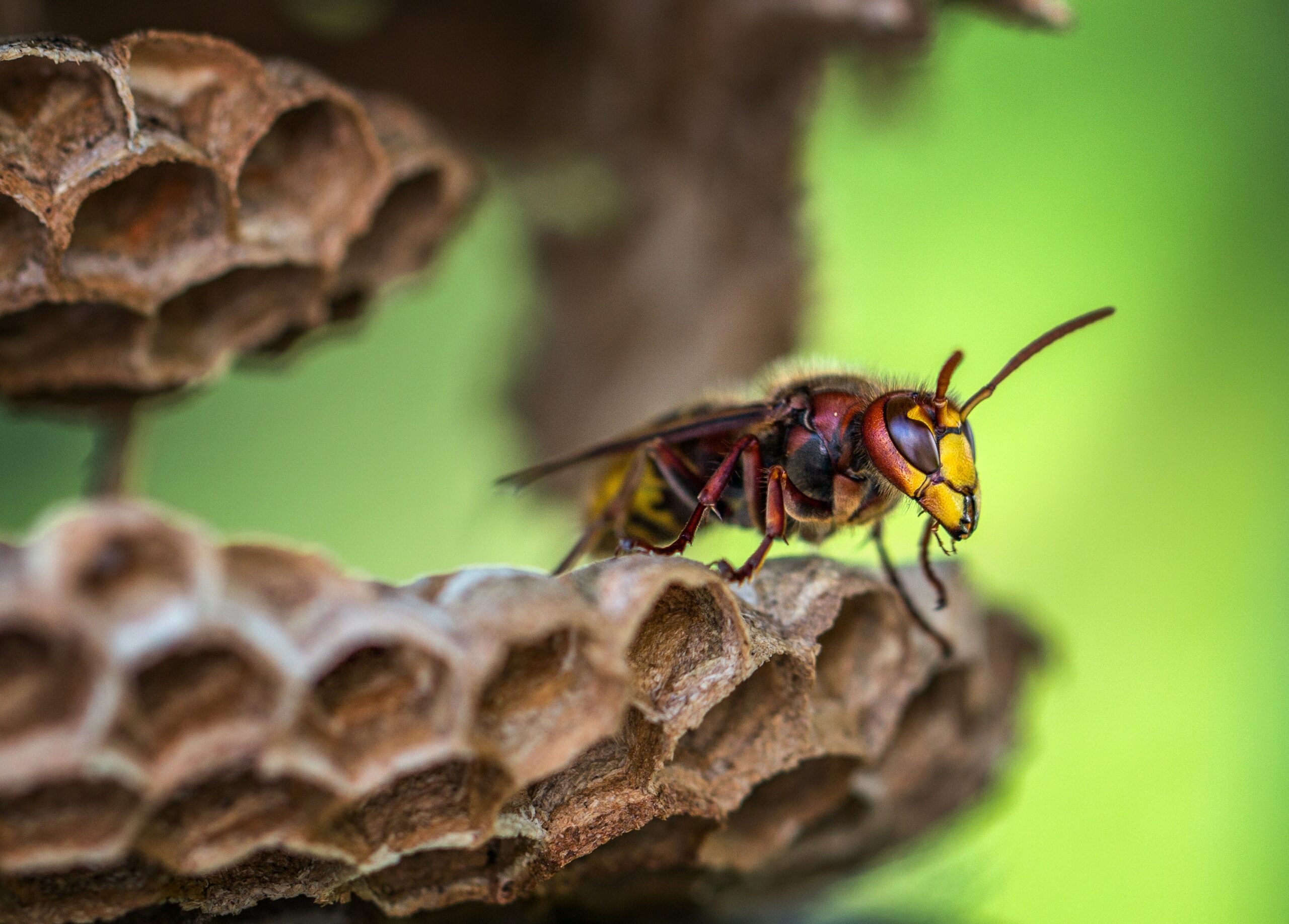What Are Stinging Insects?
Stinging insects all have a stinger extending from their hind end they use as a means of defense. If something threatens an individual or their nest, the stinging insect will retaliate the only way it can, by delivering painful stings. Predatory stinging insects in Havertown also use their stinger to paralyze their insect prey so they can take it back to the nest.
Stinging insects are an essential part of the ecosystem. They are responsible for pollinating the plants and crops we rely on and as a way to help reduce nuisance and dangerous insects. We need stinging insects but don't need them in our homes.

Are Stinging Insects Dangerous?
Stinging insects are dangerous to both people and our pets. When a sting occurs, the health effects can range from mild to life-threatening. The number of stings you receive, the amount of venom they injected, and how allergic you are to their venom all play a role in the resulting reaction.
Having a yard overrun by stinging insects means that you and your family can't fully enjoy your outdoor space. Trying to constantly make sure that you aren't coming into contact with these pests is stressful.
Why Do I Have A Stinging Insects Problem?
Stinging insects are most active and problematic in the late summer and early fall. Yes, stinging insects are active in the spring in early summer, but they are usually happily gathering food and don't pay people much attention.
However, food sources become more scarce in the late summer and early fall. A lack of food attracts stinging insects to our property's gardens, trash cans, pet food, and outdoor eating areas. The more contact you have with these pests, the more likely a sting will occur.
Where Will I Find Stinging Insects?
Stinging insects are regularly found in our yards because they provide them with everything they need for a successful life. Our gardens, trees, homes, and outdoor structures offer them secluded places to nest.
Some stinging insects like to nest in the ground or at ground level along walkways, in the abandoned nests of small animals, and under shrubs, woodpiles and rockpiles. Stinging insects that build their nests up off the ground do so on tree branches, tree hollows, under decks, porch steps, roof eaves, and on utility poles.
Spots in our yards that we may not think about but that can become nesting sites include sitting lawn equipment, grills, under the roof eaves of sheds, barns, and garages, and behind our home's wall voids.
How Do I Get Rid Of Stinging Insects?
If you need help eliminating stinging insects from your property, the professionals at Cunningham Pest Control can assist you. We offer target services to get to the root of your stinging insect problem and help ensure that these dangerous pests won't return.
Our technicians are committed to all of our Greater Philadelphia customers. We provide the most comprehensive treatments and environmentally conscious products and services. Call today to learn about the benefits of residential pest control and commercial pest control in Havertown!
How Can I Prevent Stinging Insects In The Future?
Prevent stinging insects from becoming a problem on your Pennsylvania property through professional stinging insect control and the following stinging insect prevention tips:
- Keep a close eye on your yard; at the first sign of a stinging insect problem, contact a professional for help.
- Remove standing water from your property.
- Stop stinging insects from foraging for food in trash cans, recycling bins, and compost by always keeping lids on them.
- Maintain garden areas.
- Pay attention to the number of flowering plants near your entrances.
- Cut back shrubs, bushes, and trees from your home, decks, eating areas, garages, and sheds.
If you would like a consultation or more information about stinging insect control in Havertown, don't hesitate to reach out! We are here to help you and meet all your pest control needs.
